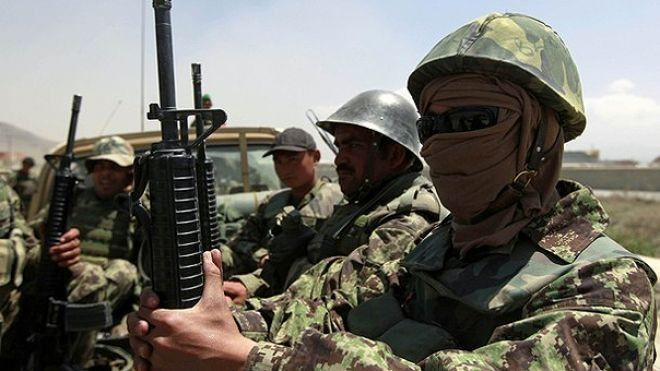NATO Pull-Back In Afghanistan Not 'Change In Strategy,' But Likely Response To 'Innocence Of Muslims' Protests

Following reports of a suicide bomber that rammed a sedan filled with explosives into a bus and killed nine people in Kabul on Tuesday, NATO said it will be temporarily, but "indefinitely," suspending future join operations with Afghan security forces.
The announcement was made after a string of "insider attacks" on foreign servicemen that have killed around 51 NATO soldiers, including two British troops who were shot to death on Monday by a man dressed as an Afghan policeman, the British outlet Sky News reported.
U.S. Colonel Tom Collins, a NATO spokesman, told Reuters that this was a "temporary and prudent response" to what may be increased threats of insider attacks after the flare-up of protests against the film "Innocence of Muslims."
"It will apply only until the threat level returns to a tolerable level," Collins told Reuters.
Anders Fogh Rasmussen, Secretary General of NATO, told The Telegraph that insurgents on the ground could use the film as a pre-text to step up attacks.
"I can't exclude the possibility," he said. "I think anything will be used as a bad excuse for attacking out troops."
For now, only large operations will be conducted jointly, and smaller operations will be approved on a case-by-case basis. NATO told the BBC that it remained "absolutely committed to partnering with, training, advising, and assisting" the Afghan National Security Forces.
"The strategy we are pursuing is the only strategy that makes sense," Rasmussen said. "With the goal to let the Afghans take full responsibility for their own security by the end of 2014...It is not an accelerated timeline. We stick to the timeline we outlined two years ago, that in a gradual process we will hand over lead responsibility for security to Afghan security forces."
U.K. Foreign Secretary William Hague told the BBC that the pull-back was not "a change in strategy," and Chief of Defense Staff, General Sir David Richards similarly told Sky News, "There is no change in strategy. How we implement the strategy is always under review."
In addition, U.K. Defense Secretary Phillip Hammond told the Guardian, "The whole of the strategy in Afghanistan now is built around the premise that as the international forces step back, and the Afghan forces can step up."
The Americans have made similar statements.
U.S. Defense Secretary Leon Panetta, speaking to reporters in Beijing, said that the increased risk of violence is not going to alter President Barack Obama's goal of removing all U.S. troops from the region by 2014, according to Bloomberg. Nor does the increase in attacks mean the Taliban is gaining ground.
© Copyright IBTimes 2024. All rights reserved.






















